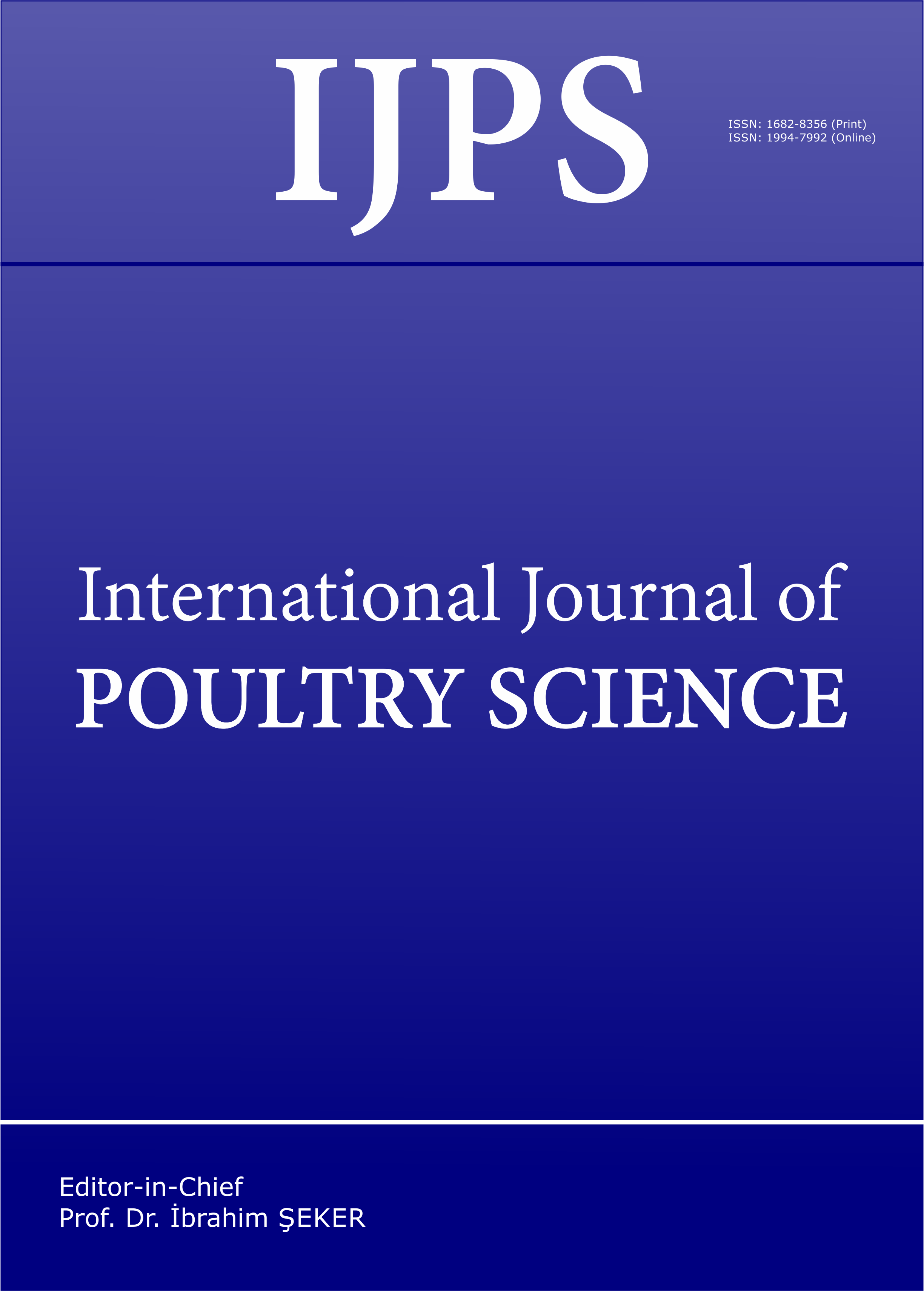Shell Thickness of Turkey Eggs Affects Cardiac Physiology and Embryo Survival
DOI:
https://doi.org/10.3923/ijps.2006.796.803Keywords:
Cardiac physiology, embryo survival, shell thicknessAbstract
Supplementing 500 ppm of a chelated calcium proteinate (CCP) to a commercial breeder diet resulted in thicker shells and improved embryo livability. The CCP diet was fed to one half of a flock of breeders on a commercial farm that was suffering shell problems, and a standard commercial diet was fed to the remaining half. Egg production, eggshell thickness, fertility and hatchability of eggs were all monitored over an 18 wk laying period. Feeding CCP increased shell thickness and reduced numbers of cull eggs after 8 wk of lay compared to the controls. When differences in eggshell thickness were seen after 10 weeks of egg production, embryo survival and cardiac physiology were examined in three trials comparing the thicker shells to thin. Thick shells (0.44 versus 0.39 mm) improved embryo survival 2% by decreasing numbers of embryos dying late in development compared to controls and affected cardiac physiology. Thus, thick shells may improve embryo viability by affecting cardiac health during the plateau stage in oxygen consumption.
Downloads
Published
Issue
Section
License
Copyright (c) 2006 Asian Network for Scientific Information

This work is licensed under a Creative Commons Attribution 4.0 International License.
This is an open access article distributed under the terms of the Creative Commons Attribution License, which permits unrestricted use, distribution and reproduction in any medium, provided the original author and source are credited.

